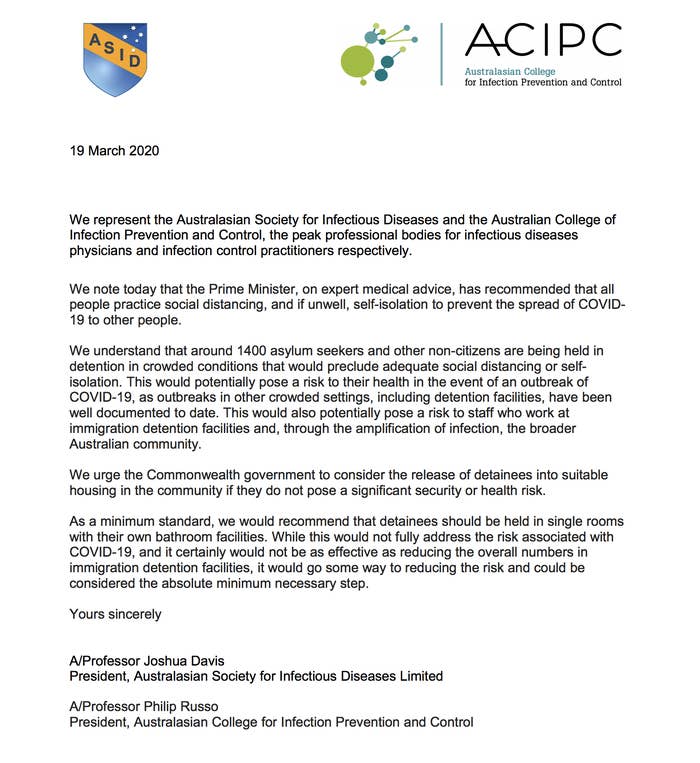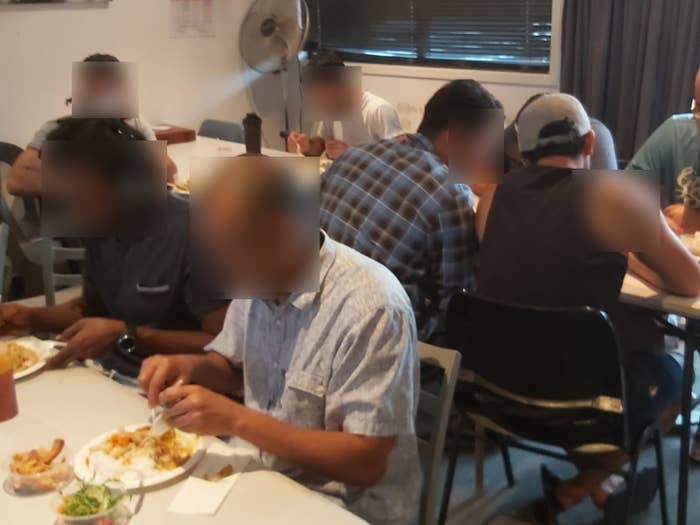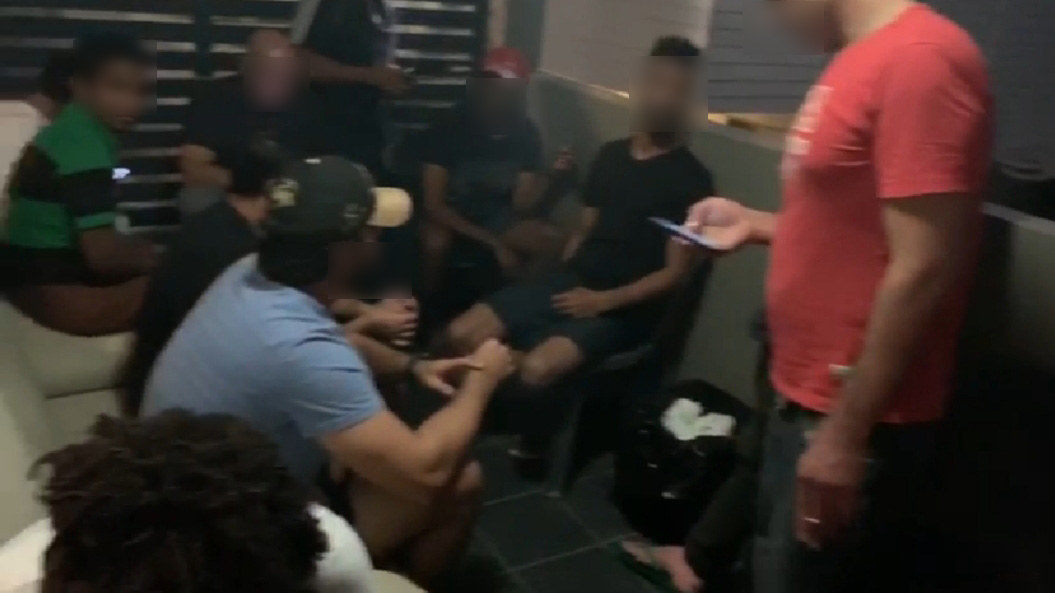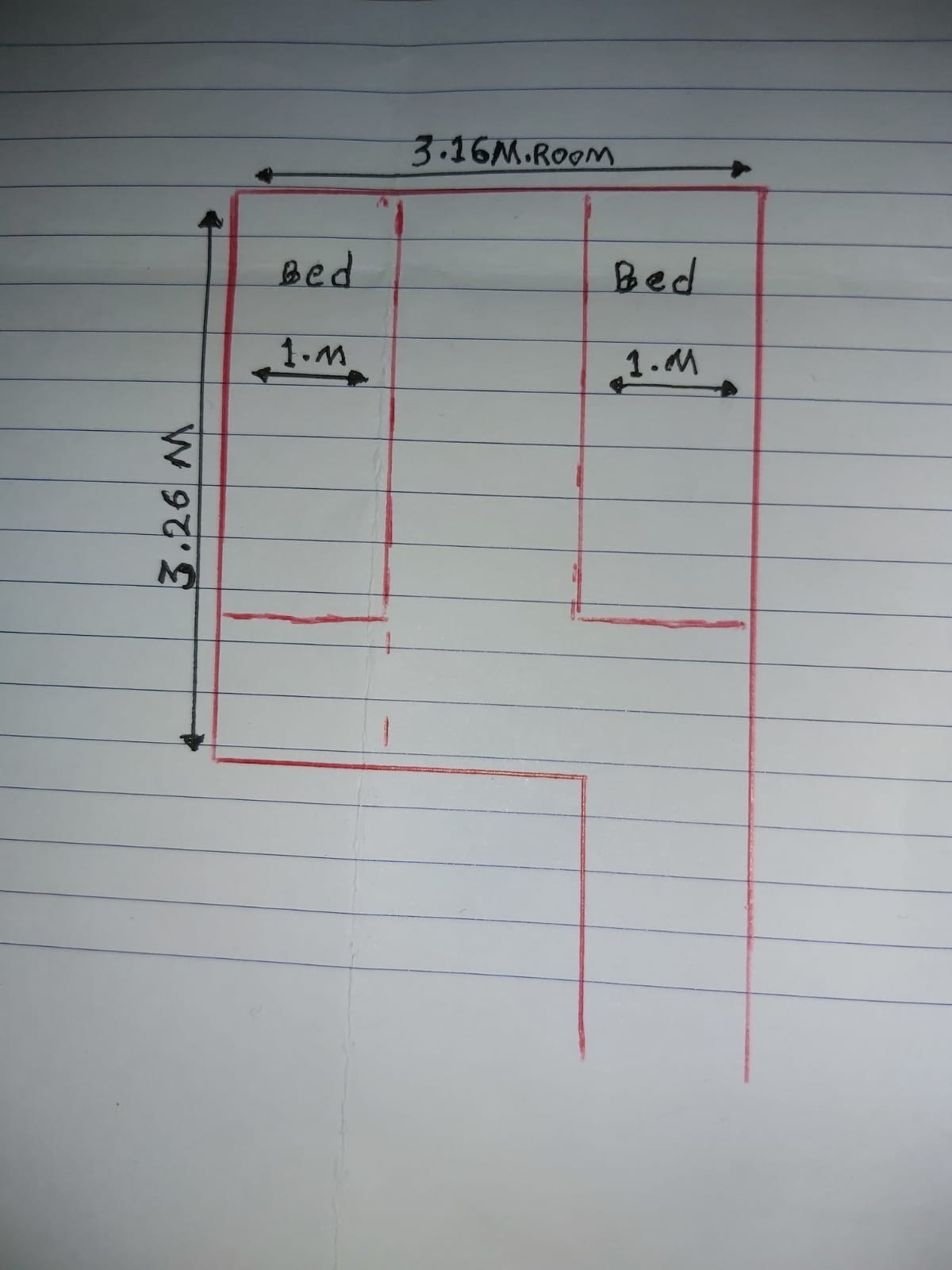
Top infectious disease experts say immigration detainees who do not pose a significant security or health risk to the community should be released to protect against an outbreak of the coronavirus in detention.
The presidents of the Australasian Society for Infectious Diseases (ASID) and the Australian College of Infection Prevention and Control (ACIPC) have published a joint statement calling on the federal government to take action to prevent the spread of COVID-19, the disease caused by the novel coronavirus, in immigration detention.
“We understand that around 1400 asylum seekers and other non-citizens are being held in detention in crowded conditions that would preclude adequate social distancing or self-isolation,” said the statement, from ASID president Joshua Davis and ACIPC president Philip Russo.
ACIPC is the peak body for infection prevention and control professionals in the Australasian region. ASID is the peak professional body for infectious diseases and microbiology in the region.

Davis and Russo said the crowded conditions could pose a health risk of a COVID-19 outbreak to detainees, as well as staff, and could also threatened the broader Australian community.
“We urge the Commonwealth government to consider the release of detainees into suitable housing in the community if they do not pose a significant security or health risk,” they wrote.
The “absolute minimum necessary step” was for detainees to have rooms and bathrooms to themselves, though even this would not fully address the risk, the statement said.
The Australian Human Rights Commission sent the statement to the head of the home affairs department, Michael Pezzullo, on Thursday.
In recent days, the UK has released 300 people from immigration detention, the Guardian reported.
Fears of a coronavirus outbreak in detention centres are high among the detainee population, which includes hundreds of people brought to Australia from offshore detention for medical treatment.
Detainees in Brisbane were told on Wednesday evening that an officer with detention contractor Serco had tested positive for COVID-19. The officer worked at Kangaroo Point hotel, which has been deemed an “alternative place of detention”, or APOD.
Photos and videos from the APOD shared with BuzzFeed News show the men queueing up close together to be served dinner, then sitting to eat side-by-side.
One man, A, told BuzzFeed News the men were watching prime minister Scott Morrison’s announcements about social distancing in the news but could not implement his advice.
“We don’t have any place to move,” A, who asked not to use his full name for privacy reasons, said. “We are standing in line for food, lunch, dinner and the place for using cigarettes.”

When the 80 or so detainees held at the APOD want to get fresh air, they only have access to a small balcony which is used as a smoking area. Otherwise, they need to book in a visit to the detention centre near Brisbane’s airport, the Brisbane Immigration Transit Accommodation centre (BITA).
"When we are going to gym in BITA, three security guards come with four or five refugees in the one car," A said. They are also subject to pat searches on the way in and out of both the APOD and BITA.
At BITA, detainees are sleeping four to a room. After using his phone charging cable as a makeshift ruler, one detainee told BuzzFeed News the rooms measures 3.26 metres by 3.16 metres.
This is the size of the rooms at BITA immigration detention centre in Brisbane. Four men to a room.

The government’s response to the risk of a coronavirus outbreak in detention has so far centred on preventing the virus from entering facilities in the first place.
Detainees are not permitted to touch their visitors. Detention centre staff are now subject to "additional screening" and high-traffic areas are being cleaned more often.
